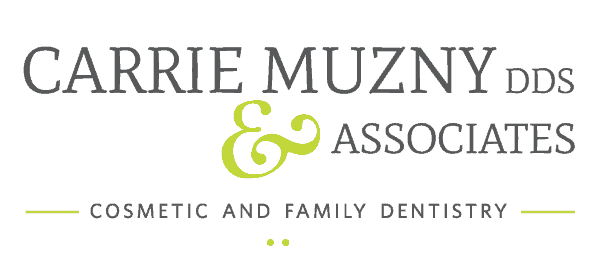
Overcoming Dental Anxiety
Regular dental check-ups are essential for maintaining healthy teeth and gums. However, dental anxiety is a common issue and affects many people of all ages, and if you suffer from dental anxiety, it can keep you from going to the dentist.
Instead of postponing regular dental checkups, finding ways to cope with your dental anxiety is beneficial.
We will discuss the symptoms and causes of your dental anxiety, how dental anxiety can impact the health of your teeth, and the best ways to overcome the fear of going to the dentist.
Symptoms Of Dental Anxiety
Anxiety can affect people in various ways. Some of the symptoms you may experience with dental anxiety include the following:
- Panic attacks
- Heart palpitations
- Low blood pressure
- Aggressive behavior
- Extreme sweating
- Feeling faint
- Crying
- Avoiding the dentist
Causes Of Dental Anxiety
The most common causes of dental anxiety include:
- Fear of pain
- Fear of anesthesia and its side effects
- Fear of anesthesia not working
- Fear of loss of control
- Trust-related issues
- Past traumatic dental experiences
- Fear of needles and drilling
- Uncomfortable with someone being in your personal space
- History of generalized anxiety disorder
How Dental Anxiety Affects Your Oral Health
If your anxiety keeps you from regular dental checkups and too much time passes between scheduled appointments, this can lead to critical oral health issues. Regular dental appointments help your dentist text cavities and other oral health concerns early on.
It is essential to maintain regular dental appointments to reduce your risk for gum disease and other issues like losing teeth, bleeding gums, bad breath, and bone loss.
Best Ways For Overcoming Dental Anxiety
1. Communication Is Key
Communicating your concerns and anxiety to your dentists can help make the process easier for you. Many dentists are willing to explain each step from start to finish so that you know what to expect. Dentists have a lot of experience with patients having anxiety and may be able to recommend techniques to help you relax and feel more comfortable during your appointment.
2. Breathing Exercises
Learning deep breathing exercises can help you feel calmer and relax your mind. To practice, close your eyes and slowly inhale through your nose, holding your breath for a few seconds, and then slowly exhaling through your mouth. Repeat this breathing exercise several times until you begin to feel relaxed.
3. Meditation and Calming Music
The anticipation of your dental appointment can cause anxiety to spike. Before your appointment or sitting in the waiting room, consider using meditation or music to help calm your mind and body. Meditation is a simple practice that can help promote calmness and reduce stress and can be done even at your dentist’s office.
You can meditate with your eyes open or closed. Fix your eyes on a specific object in front of you or your mind. Use deep breaths to allow your body to relax completely. Focus on the various parts of your body where you feel tightness or tension. As you breathe out, make a conscious effort to release the tension, relaxing your entire body, from your head to the tips of your fingers and toes. You can meditate before and during your appointment, which will help you to remain calm and focused.
4. Guided Visualization
- You can also visualize your appointment ahead of time, imagining yourself sitting in your chair, calm, relaxed, and happy. Use your visualization to help you maintain calm and happy thoughts during your appointment.
- Practice your visualizations at home and create your “happy place.” Once you’re at your appointment, utilize your visualization and imagine yourself in your “happy place” to help you to stay calm and relaxed.
5. Hypnosis
Hypnotherapy consists of quieting the conscious mind and creating a state of peacefulness and calmness in your body and mind. The hypnotherapist uses guided relaxation to help you achieve a trance state and the power of suggestion to help relieve your anxiety. It is also important to understand that hypnotherapists cannot make you do anything that you yourself do not want to do.
6. Using A Distraction
Speak with your dentist beforehand to see if you can watch a movie or TV or maybe wear headphones and listen to music during your appointment.
7. Bring A Supportive Companion
If you have a supportive family member or friend that helps you feel calm, safe, and relaxed, you ask your dentist if it is OK for them to accompany you to your appointment.
8. Analgesia
Analgesia is a medication that helps relieve pain however it can also be used during dental appointments to help reduce moderate anxiety as well as provide pain relief.
Dentists will often use nitrous oxide, commonly known as laughing gas, a colorless and odorless gas that you breathe in before or during your procedure. Make sure that you check to see if your insurance or coverage for nitrous oxide as some plans do not cover the benefit.
9. Anxiety Medication
For moderate anxiety your dentist may prescribe a short-acting anti-anxiety medication to help lessen your anxiety before and during an appointment. You must take the medication at least one hour before your visit.
10. Conscious Sedation
For moderate to severe anxiety your dentist may choose may suggest that conscious sedation may be a good solution for you. This would involve taking an oral sedative hours before your dental appointment. Conscious sedation is not the same as general anesthesia, and you will not be asleep during your appointment. Still, you will remain aware as well as responsive and in a very relaxed state.
11. General Anesthesia
For some patients general anesthesia is the best option for severe dental anxiety. It is important to keep in mind that dental anesthesia is sometimes administered in a hospital setting by an anesthesiologist. While some dental offices may be able to provide general anesthesia, it can only be done in a dentist’s office when the dentist has gone through specialized training.
13. Go To A Dentist You Can Trust
Find a dentist you can trust who is willing to listen and has the skill set to provide excellent oral health care and the compassion to help find a way for you to feel comfortable and safe.
Carrie Muzny DDS, Compassionate Dental Care For A Healthy And Beautiful Smile
At Carrie Muzny DDS, our skilled team will help you understand the different options available to you for the best results. We offer dental care for the entire family from customized cleaning to cosmetics, we can help you maintain your oral health and have a positive dental experience. Contact us today to book an appointment.

